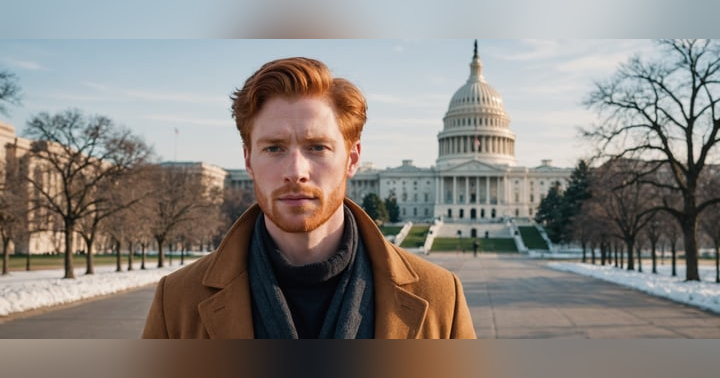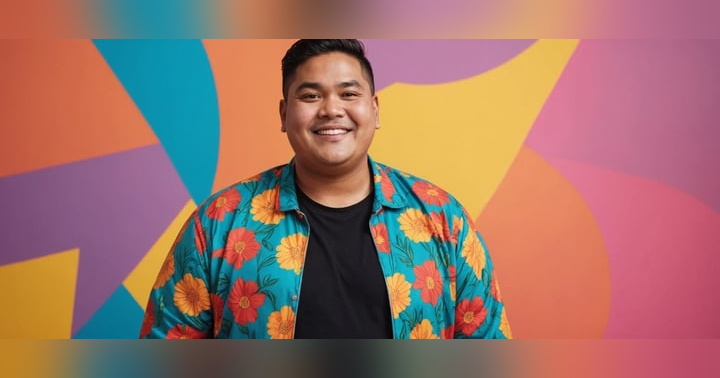Lights, Camera, Activism: How Trans Filmmakers are Redefining Representation in Film

The Fight for Authentic Queer and Trans Representation
In an era where LGBTQ+ visibility has reached new heights, the fight for authentic queer and trans representation in media has never been more urgent. Despite advances in inclusivity, mainstream platforms often cancel queer-led series, cast straight actors in LGBTQ+ roles, and lean on stereotypes rather than authenticity. In today’s climate, where anti-LGBTQ+ rhetoric and legislation are gaining traction, the need for stories told by queer and trans individuals is both an act of resistance and a matter of survival.
Trans filmmaker, producer, and founder of Mattioli Productions, AJ Mattioli is at the forefront of advocating for genuine queer representation. For AJ, representation transcends visibility; it's about truth. "Representation of transgender people was relatively non-existent, unless you really, really looked for it," he reflects, noting the lack of meaningful portrayals during his upbringing. His work challenges the sanitized and often stereotypical portrayals seen in mainstream media, focusing instead on marginalized queer identities, including polyamorous and gender-diverse individuals. Through his production company, AJ aims to center these voices by telling queer stories for queer audiences, ensuring they are seen, heard, and validated.
The Urgency of Authentic Media Representation
As LGBTQ+ visibility continues to grow, the need for true, complex, and community-led queer narratives becomes more pressing. Media has the power to shape perceptions and offer queer and trans people a reflective space. However, the cancellation of inclusive programming and the casting of cisgender actors in trans roles highlight a recurring issue: queer stories are often commodified without being authentically understood. In these times of political and cultural backlash, media becomes not only entertainment but also a critical form of resistance that demands authenticity.
AJ emphasizes this urgency, especially in providing queer youth in conservative environments with access to stories that affirm their identities. For AJ, queer filmmaking is not about commercial success but about making sure these stories are told. His work highlights the critical need for queer-centered films that offer more than just representation—they provide connection, comfort, and affirmation for those most in need.
Mattioli Productions: A Platform for Unapologetically Queer Stories
Mattioli Productions was born out of a desire to reclaim creative autonomy and uplift queer voices in media. Established with the intent to produce films reflecting the lived experiences of LGBTQ+ communities, particularly trans individuals, the company has become a pivotal force in queer independent cinema. The personal connection to the company's name—the founder's family—underscores the importance of support in filmmaking. As AJ explains, “Your money goes to employ a misrepresented and underrepresented group of people. And your money goes further with me because of that.”
Despite the challenges faced by independent queer filmmakers in securing funding, Mattioli Productions thrives thanks to its ethos of inclusivity and intentional hiring practices. Approximately 75% of the crew identifies as queer, while the remaining members are steadfast allies. This commitment ensures that queer people are empowered at every stage of filmmaking, fostering a safer and more inclusive set. The company’s early projects, such as The Coffee Shop and Lady Peacock, aim not for commercial returns but to amplify stories often overlooked by mainstream media.
The Need for Authentic Representation Behind the Camera
True queer and trans representation extends beyond what is seen on screen—it starts behind the camera. Writers, directors, and producers shape the narrative, and their lived experiences are key to ensuring authenticity. As AJ points out, “No matter who is cast in the role, the people behind the scenes are the ones that are in charge of making the movie. It’s how the movie looks, it’s how the movie feels, it’s how the movie’s edited, it’s how it’s directed. All that needs to be authentic.” Queer filmmakers bring a cultural shorthand to storytelling that enhances the film’s emotional depth, ensuring that queer experiences are portrayed with accuracy and respect.
Inclusive hiring practices behind the scenes are also essential for equity and survival. Beyond representation, they create economic opportunities and affirm that queer talent belongs at every level of production. In a time when diversity, equity, and inclusion (DEI) initiatives are facing pushback, employing LGBTQ+ professionals in media is a necessary step toward fostering an inclusive, fair industry.
The Corporate Disconnect: Media Giants and Queer Representation
Despite the push for more inclusive media, large streaming platforms and corporations often fall short in their commitment to LGBTQ+ communities. Companies like Netflix, which once led the charge for queer representation, have been criticized for their hypocrisy. While promoting queer-led programming, Netflix has also platformed comedians like Dave Chappelle, whose anti-trans rhetoric has sparked significant backlash. AJ offers a blunt assessment: “To not take a stance is weak… For the person running Netflix to say, ‘We’re going to make money off of queer people on one end, and then the next minute put Dave Chappelle’s special on,’ it just shows they have no backbone, they have no real morals, they have no real standing points.”
Such contradictions are more than just disappointing—they have real-world consequences. After one of Chappelle’s specials, trans activist Daphne Dorman was subjected to harassment that ultimately led to her tragic death. This underscores the harmful impact that transphobic content can have, making it clear that representation comes with responsibility. Streaming giants must prioritize ethical commitments and recognize that representation without responsibility is hollow.
Fighting Back Against Anti-Trans Sentiment
As anti-trans rhetoric becomes more pervasive in media and politics, it is crucial for both the LGBTQ+ community and allies to resist and push back. While larger systemic change is necessary, everyday actions can make a difference. These include correcting transphobic comments, challenging harmful narratives, and defending trans rights in both public and private spaces. “I think you have to give people the time to evolve, to get to that place, but it’s important to tell them where they need to go, where that place is, where the end goal is—and the end goal is, you defend,” AJ explains. His words highlight the importance of allyship in transforming passive bystanders into active defenders of trans rights.
Moving Beyond Stereotypes: Expanding Representation
While queer and trans representation has improved, significant gaps remain. Popular portrayals often rely on narrow, stereotype-driven depictions, particularly of lesbians and trans individuals. Femme-presenting lesbians are frequently featured, leaving out the more significant portion of the lesbian community, such as masculine-presenting lesbians or studs, who are rarely seen in mainstream media. AJ notes, “Every lesbian that was in the show was femme. And if you go to [lesbian bars] in New York, it is 75% studs, 25% femmes. And the studs are never shown on mainstream media.”
Similarly, trans representation continues to be predominantly trauma-based, focusing on rejection and hardship, which risks sending the harmful message that trans lives are only about pain. In contrast, showcasing joyful, empowered trans characters offers hope and a more accurate reflection of the community’s diversity. Additionally, bisexual and pansexual individuals often face erasure or harmful stereotypes, with bi characters being portrayed as promiscuous or used merely as plot devices. This misrepresentation must end for queer and trans people to see themselves not just surviving but thriving.
Empowering the Next Generation of Queer Filmmakers
With rising legislative attacks on the LGBTQ+ community, independent queer filmmaking remains essential for the growth of authentic representation. AJ encourages emerging filmmakers to begin creating regardless of resources, stating, “If you are at an age where your friends are still willing to volunteer their time, make your movie. I don’t care if you make it on a cell phone—make the movie.” This ethos emphasizes the importance of vision and commitment over perfect conditions, with platforms like YouTube and Vimeo offering accessible outlets for queer stories.
By supporting and mentoring young queer filmmakers, the community can continue to shift the cultural landscape, ensuring that queer and trans lives are portrayed with authenticity, joy, and complexity.
Creating a Future of Representation
In the face of ongoing adversity and hate, the queer and trans communities continue to demonstrate their strength and resilience. The power to shape our narratives lies within us, whether through the lens of a camera, the pages of a script, or the support of audiences who champion diverse voices. As a community, we are capable of creating the representations we’ve long desired—ones that reflect the fullness of our identities, challenges, and joys.
Now, more than ever, it’s essential to stay connected to our passions and strengths. By doing so, we can take inspired action to shape the future we envision—one where LGBTQ+ individuals are seen, heard, and celebrated. For filmmakers, artists, and storytellers, this is a call to create. For viewers and allies, it’s an invitation to support and uplift queer media. Together, we can build a world where representation is not just a dream but a reality for current and future generations of LGBTQ+ people. Through these efforts, we can ensure that our stories are told, our voices are amplified, and our community thrives.
And remember: every day is all we have, so you've got to make your own happiness.
For more information on this topic, listen to Episode 150. Lights, Camera, Action: The Importance of Trans Voices in Media (with AJ Mattioli).
Tune into your favorite podcast player every Tuesday for new episodes of A Jaded Gay.


















